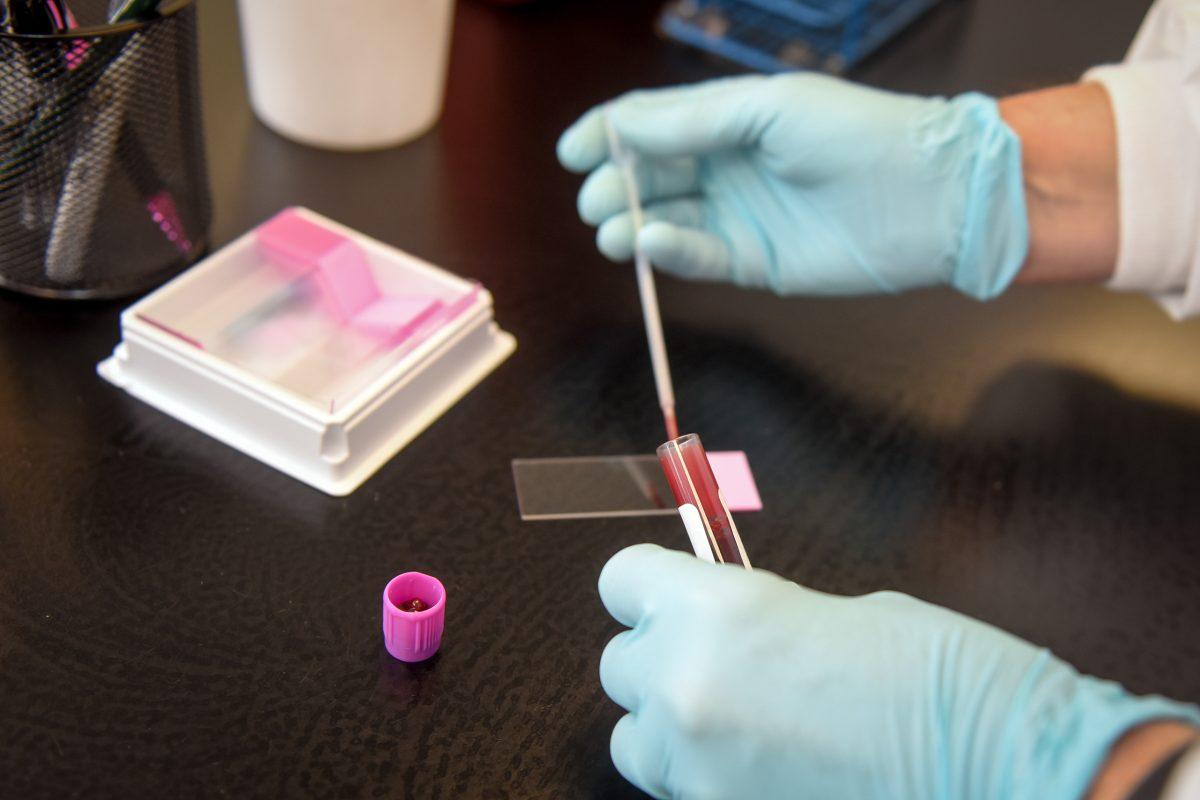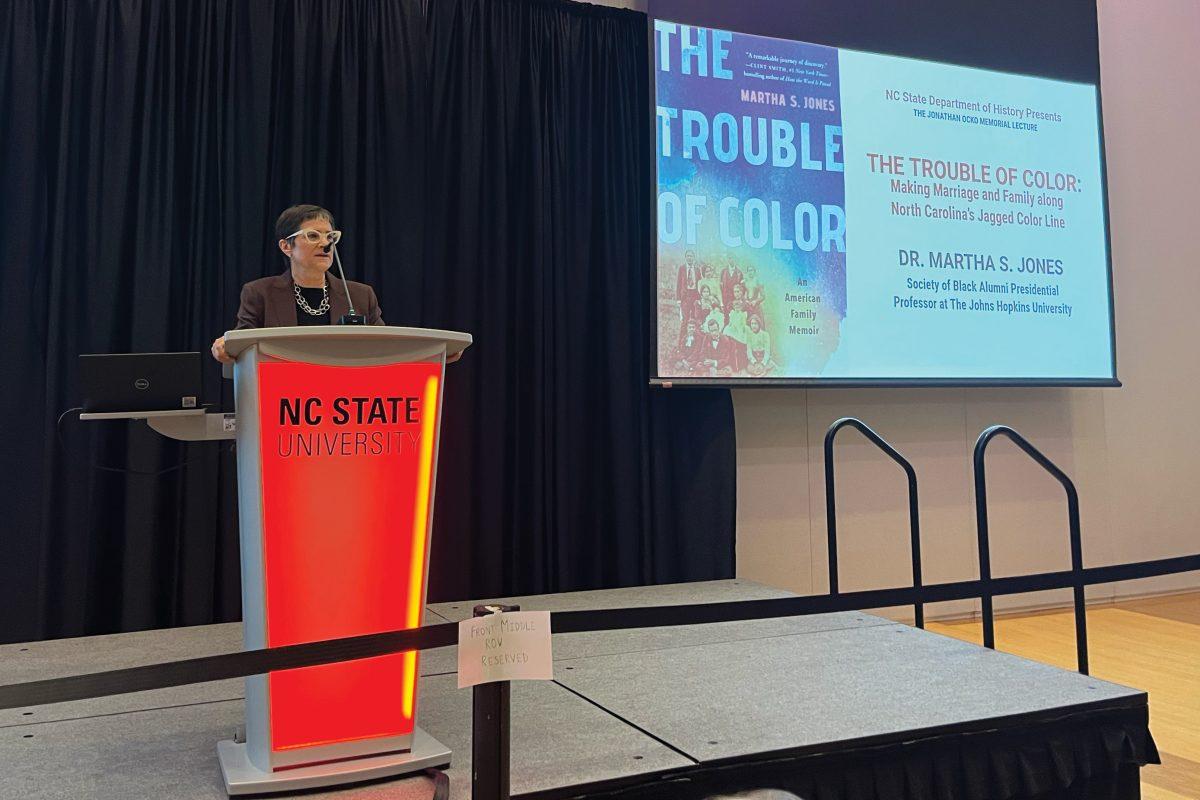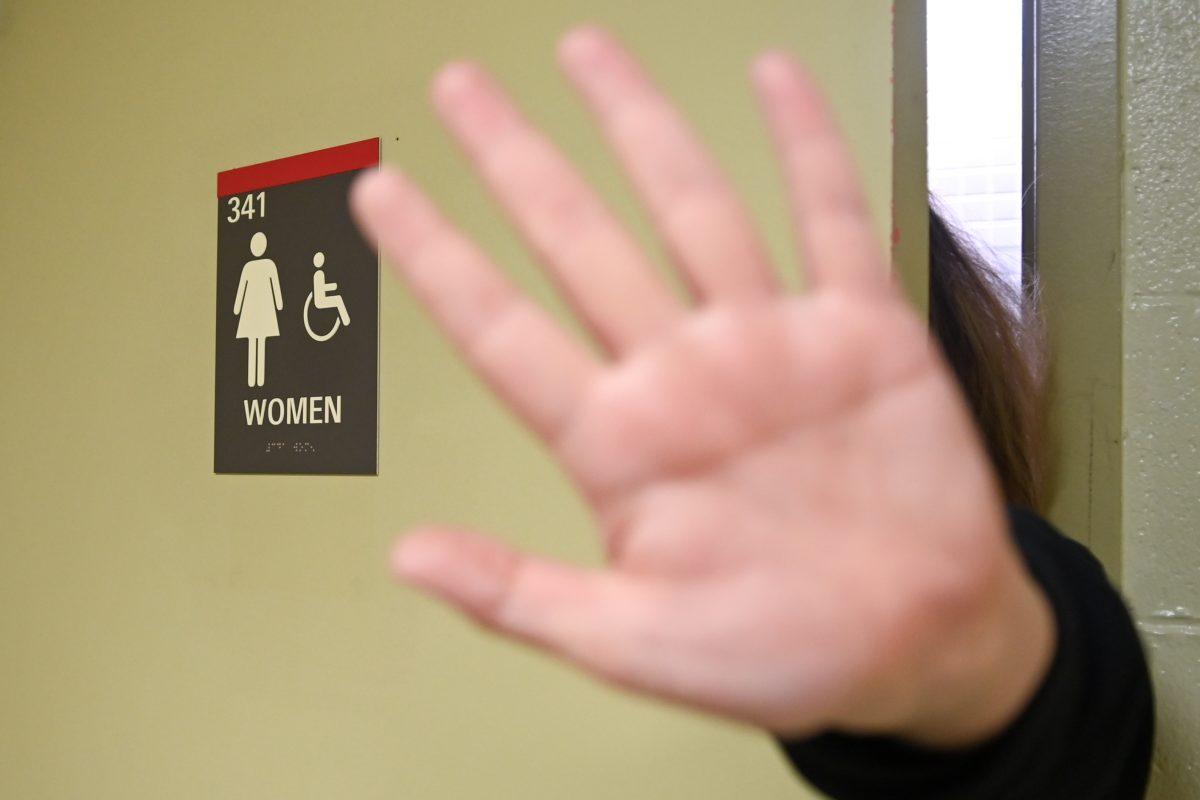Wake County and Campus Health regularly partner to provide free and anonymous HIV and testing for infections spread through sex. This February, they are providing additional services to promote sexual health education and safer sex practices.
The program visits campus on the first and third Thursday of every month to set up shop at the Health Center. During February, which is also Sexual Health Awareness Month, there are more frequent and visible events on campus.
DeCarlo Braddy, an HIV and STI coordinator for Wake County, said the additional on-campus events are intended to address a new trend of positive HIV tests at the Health Center.
“We thought we need to do a larger, more targeted event where we have all hands on deck and more people can get tested,” Braddy said.
When going into the community, testers bring everything they need with them so they are able to work in any situation. First, they brief patients about confidentiality and have a conversation about what they are in need of. On registration forms, patients answer questions assessing their risk and what kind of testing they will receive.
Counseling services cover emotional needs and assess what kind of care fits a patient. If tests come back positive, the center does its best to get the patient treated. Treatment can be a simple prescription, but can also involve assistance with housing, food and other health care to ensure the patient is in a stable, safe place to take their medication.
Sexual health services are provided to a variety of communities across Wake County, including churches, rehabilitation facilities, homeless encampments and nightclubs.
The program targets at-risk populations, such as racial, sexual and gender minorities. There are efforts to create inclusive environments so anyone can feel safe coming in to get tested, such as inclusive language training. There are also education services offered in Spanish.
Alongside education, testing and counseling, the program offers free referrals for PrEP, a drug which helps to prevent HIV.
Mikayla Crawford, a public health educator for Wake County, works on the program’s social media and conducts a variety of training and education sessions on topics including consent, relationships, anatomy, prevention tools and peer education training.
Crawford said young people can be hesitant to go to a clinic or ask questions. Providing education services and peer health training means students can ask questions to their peers and get accurate answers.
“My peer health educators will call me and be like, ‘Hey, I have a friend who’s dealing with X, Y and Z,’” Crawford said. “‘What should they do?’ And then I either refer them to our testing, or try to get a tester to come with me to go on campus.”
Crawford said education ensures people know the range of options for prevention tools, like internal condoms and dental dams, and tools they have to keep themselves safe.
“I just think it’s really important that we are bringing this information to people on campus, because as they get older, sex is going to happen inevitably,” Crawford said. “Giving them the right tools and resources is hoping to help eliminate, or at least decrease those STI rates.”
Not only does education make a practical difference in people’s sexual practices, but it also makes a dent in the stigma surrounding conversations about sexual health and STIs.
Braddy said the open conversation makes all the difference in the community and the effectiveness of testing programs. The HIV/STD Evening Clinic held at the Wake County Public Health Building, for example, has been extremely successful.
“If you go to any other health department in North Carolina, or even in the United States, they cannot draw 30 to 40 people a night to come in and get tested for HIV or STIs,” Braddy said. “I can say a lot of that is because of the atmosphere and the environment that has been created at Wake County. And when we partner with other organizations, we bring that same type of energy into that space.”
Wake County Human Services also has dozens of condom distribution sites throughout the community. They are in barber shops, salons, supermarkets and anywhere else where they might be picked up by a person in need. Crawford said these resources in accessible places makes them all the more effective.
“That’s another way that we try to connect more with the community,” Crawford said. “Letting our barbers, beauticians or wherever they are spread the message, like, ‘Hey, we are a resource to you. If you need something, whether it’s HIV or STI related or not, reach out to us.’”
Crawford said she feels sex education is important to get accurate information out there and get rid of the stigma around sexual health.
“I think this partnership is going to grow,” Braddy said. “We’re going to do more events moving forward that include the campus community as well as Wake County.”
The next dates for free STI and HIV testings at the Campus Health Center are Feb. 20, March 6 and 20 and April 3 and 17. On Feb. 26, Wake County Human Services will be in Talley offering free STI and HIV testing, gift cards, PrEP referrals, counseling and safe sex supplies.
On Feb. 18, Campus Health, the Women’s Center, University Housing, the Counseling Center and the LGBTQ Pride Center are hosting Sex in the Dark. A panel of sex-perts will be answering questions about sex, sexuality and relationships.












